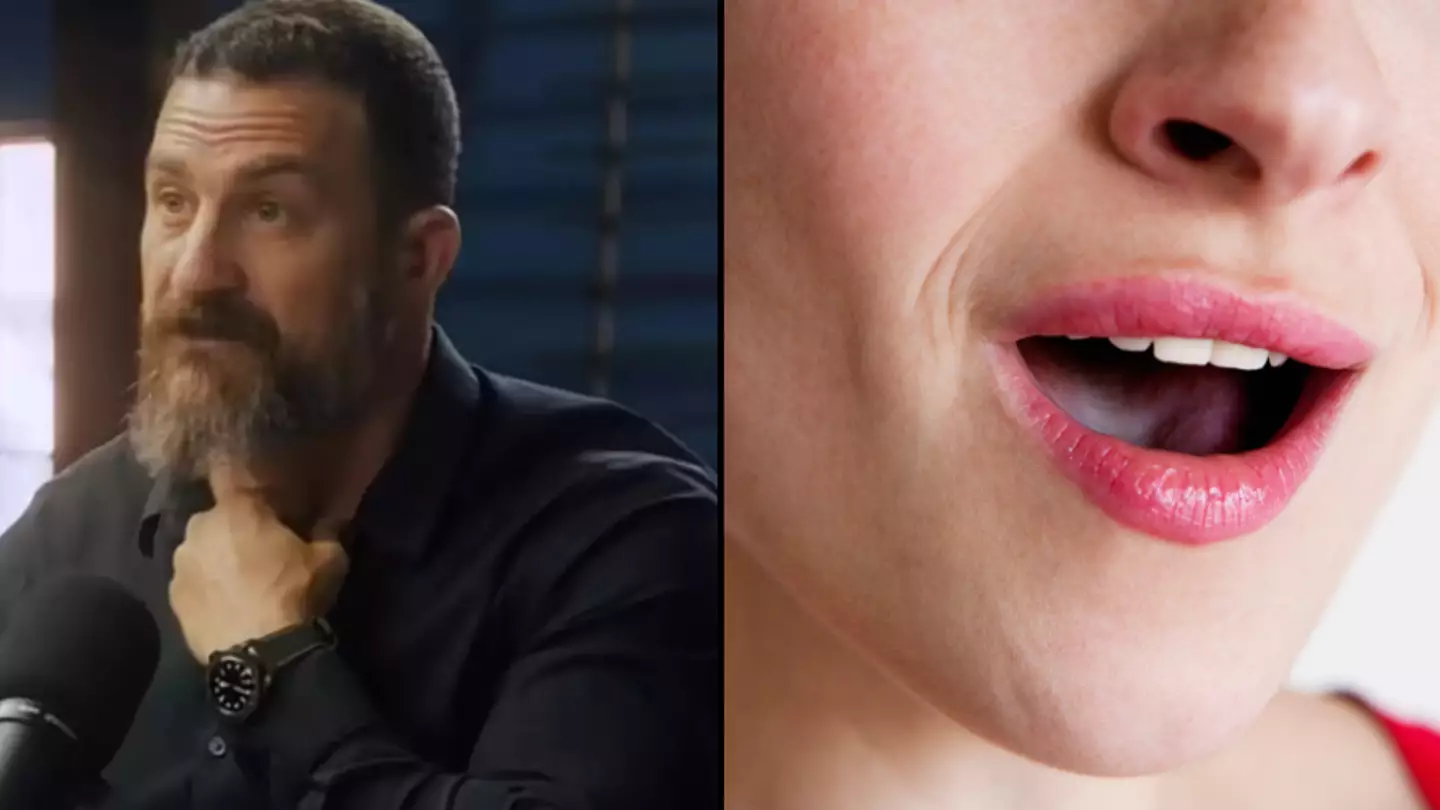
If you’re spending the day making a list of resolutions for 2025 (even if you’re not going to bother sticking to them by next week), here’s something you might consider adding.
Perhaps you’re wanting a bit of a glow up in this new year – whether it’s a relationship glow up or a career glow up, a health or any other one, there’s really nothing wrong with that. You’ve got to do what you want to do.
So, if it’s the way you look that matters to you, there’s a habit you might want to avoid as a top neuroscientist labelled it as a reason behind why people are ‘getting uglier’.
What you might think is a pretty common, innocent habit, could be the free way of getting your 2025 glow up going.
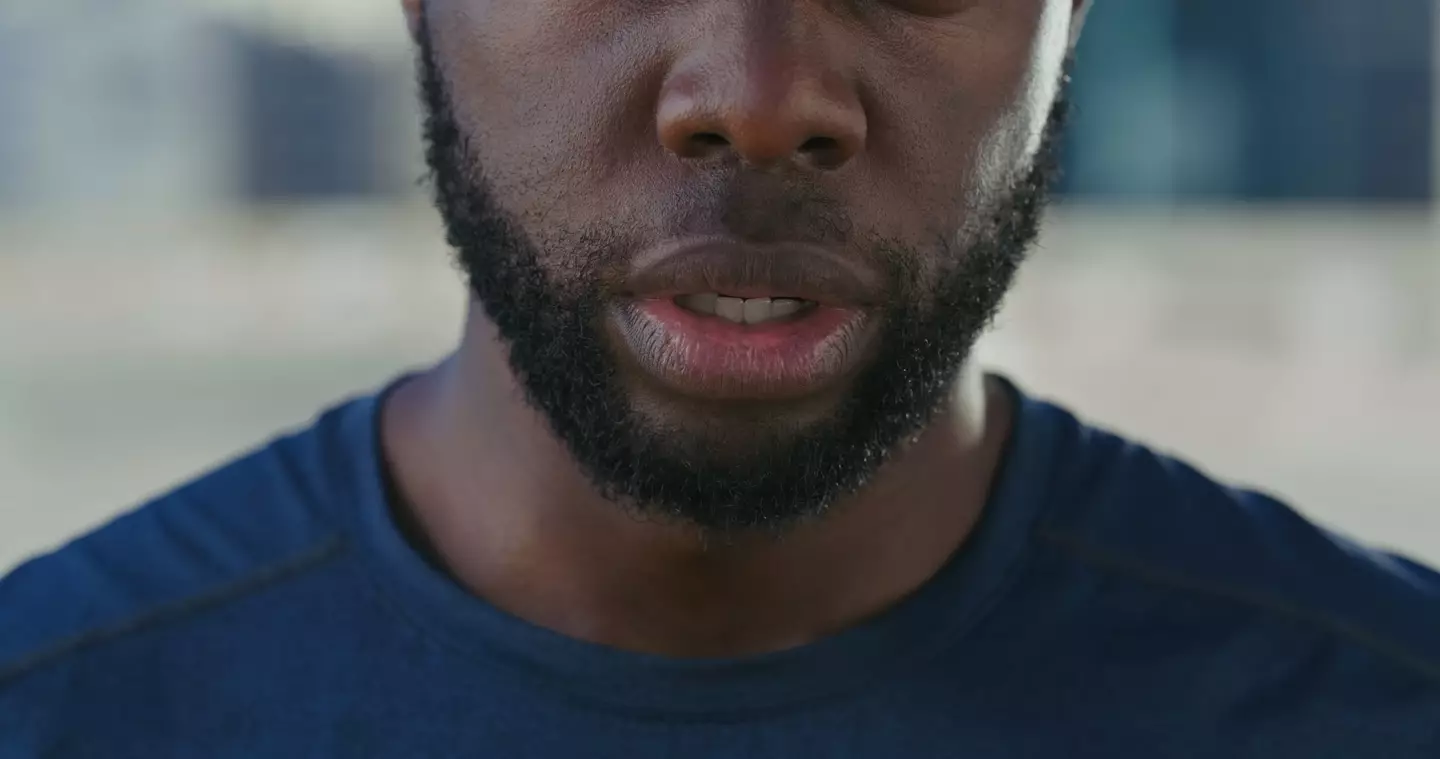
Apparently it’s making us uglier. (Getty Stock)
The habit
Dr Andrew Huberman has claimed that humanity is ‘getting uglier’ and suggested that mouth breathing is one of the ways that we’re ruining our own faces.
It’s worth bearing in mind that, for some, this is less of a habit and more of a way of life if they have things like sleep apnoea, a deviated septum and so on.
The doc claimed if you breathe this way, you could get a receding jaw line, a hump on your nose, eye bags and crooked teeth as a result.
Apparently, it’s all down to opening your mouth, which drags your tongue down and pulls your chin back. It also pulls down more of your facial features, which can have a lasting effect. While you might think this all a myth, the American neuroscientist Huberman insists it’s true.
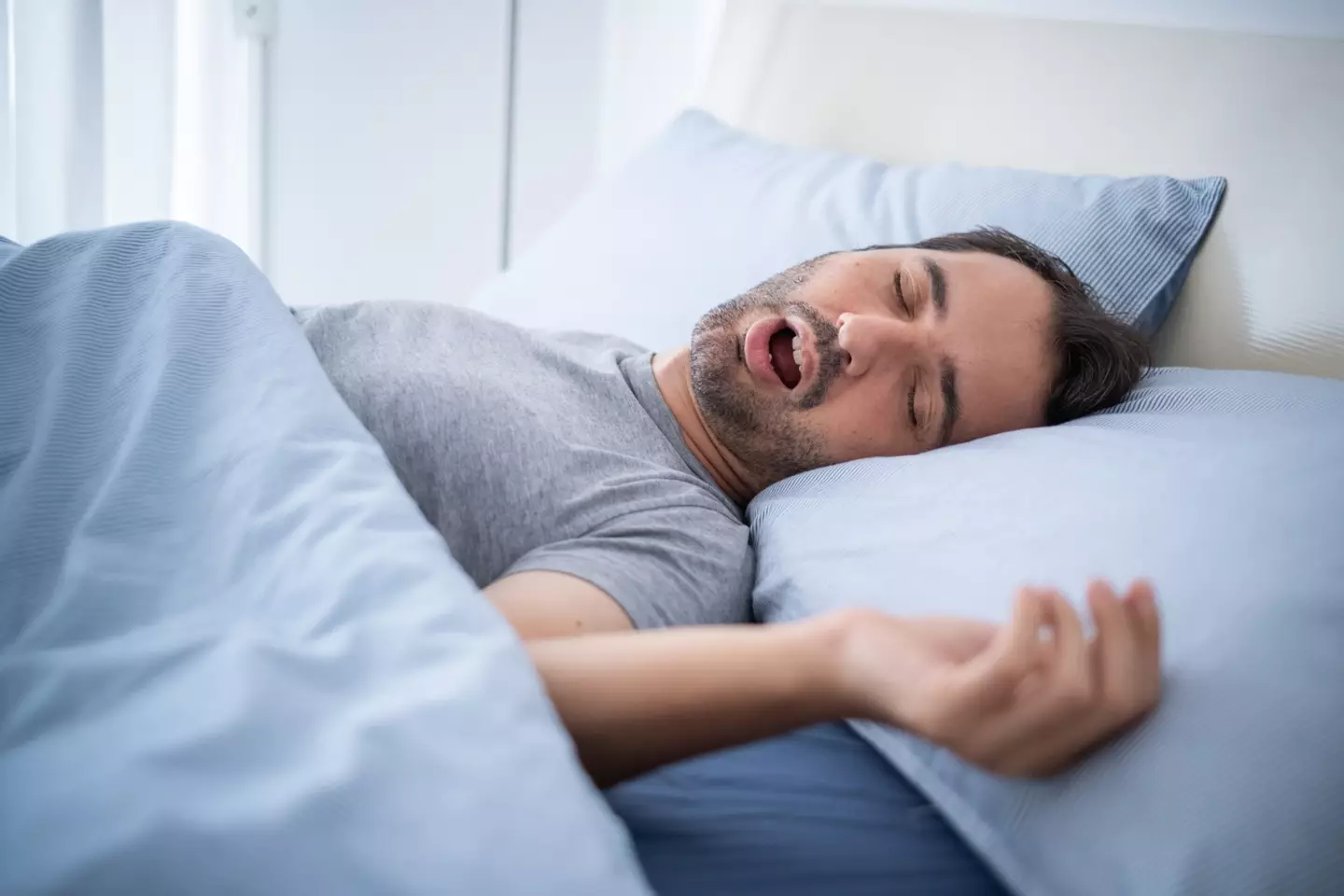
It’s recommended to try training yourself during the day. (Getty Stock)
He claimed on the Modern Wisdom podcast that those over-using mouth breathing ‘have changes in the structure of the face that makes them far more unattractive than if they were to mouth breathe’.
Huberman added: “The characteristic change in the face when one over-does mouth breathing is that the chin starts to move back towards the neck and the eyes become droopy because there is less use of the sinuses.”Play
How to avoid it
Of course, it’s pretty hard to control while sleeping, but you can apparently train yourself to breathe through your nose during the day.
The neuroscientist said: “Deliberately nasal breathing through most of your cardiovascular training will help dilate the sinuses which leads to better air flow which makes nasal breathing easier.”
While some people may have taken to using mouth tape overnight to stop them from mouth breathing in their sleep, it’s not always a good idea as you may have a medical issue that makes it hard to breath nasally as well it disrupting sleep.
So, focus on trying to do it during the day instead.Featured Image Credit: YouTube/modernwisdom/Getty Stock Images
Topics: Health, Lifestyle, Science, Sleep, Podcast

Jess Battison
Advert
Advert
Advert
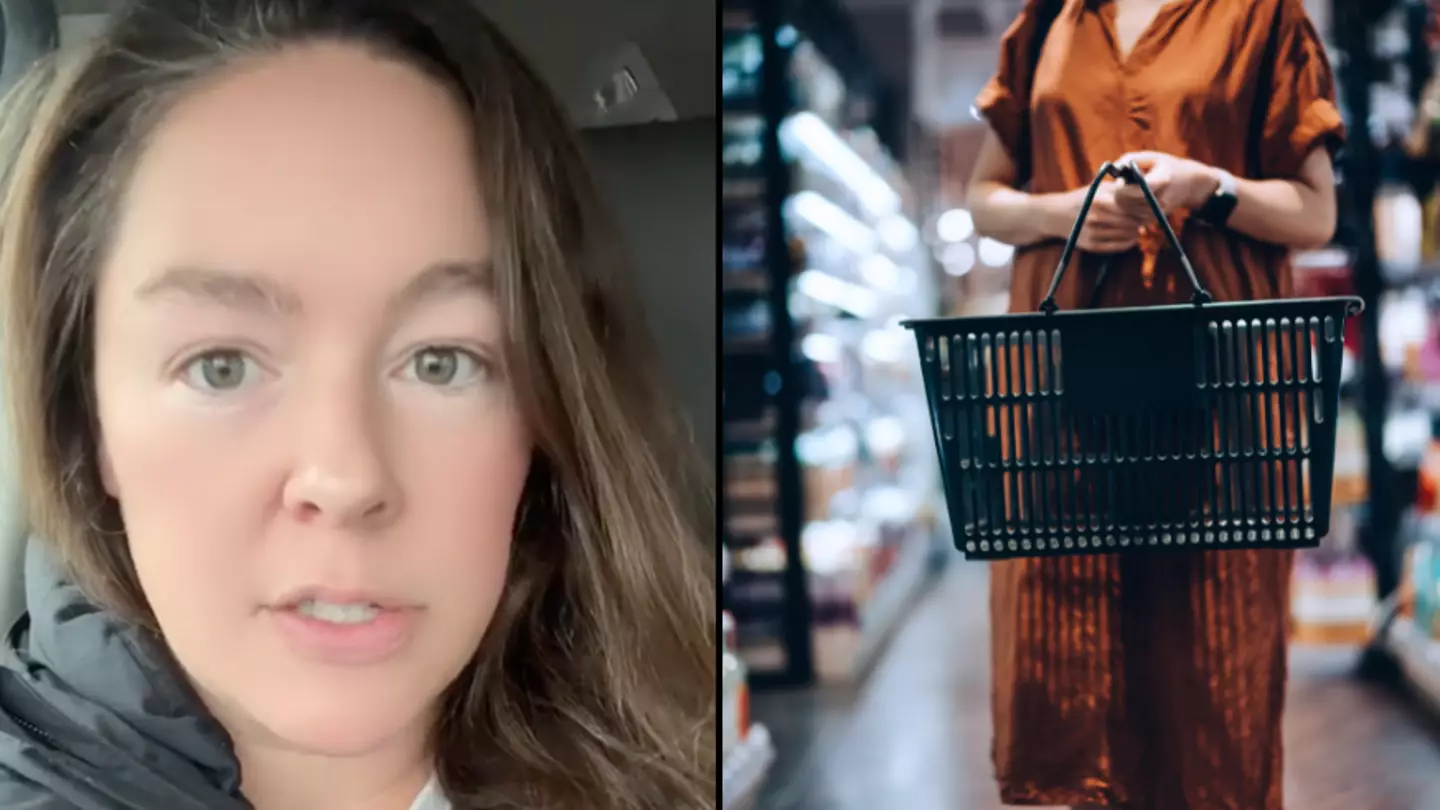
Updated 10:26 27 Dec 2024 GMTPublished 10:25 27 Dec 2024 GMT
Cancer dietician shares the two common items she tells people to avoid consuming that increase cancer risk
Many people might be unwilling to cut one of the cancer-causing items out of their diet

A cancer dietician has shared two common items that she has recommended you avoid to reduce the risk of getting the deadly disease.
The two items are both some of the first on the shopping list, and she believes that cutting them out your diet will massively reduce your cancer risk.
Nichole Andrews is a registered dietitian nutritionist who specialises in oncology nutrition and working with cancer survivors to build their health back up.
.webp)
She spoke about the risks in a video on Instagram (Nichole Andrews via Instagram)
Taking to Instagram, she shared the video titled ‘Cancer dietician shares the only two foods that increase cancer risk’.
In the video she said: “Alcohol consumption isn’t just a buzz-kill for your liver health; it also heightens the risk of breast, mouth, throat, oesophageal, and colon cancers.
“The science behind it is eye-opening. Alcohol metabolises into acetaldehyde, a known carcinogen, which can wreak havoc on our DNA, raising cancer risk.”
Not only did she rule out alcohol, the second one she listed is perhaps an even more common choice.
She went on to say: “Processed meats, including ham, salami, bacon and sausages such as frankfurters and chorizo – they’re linked to an increased risk of colorectal cancer.
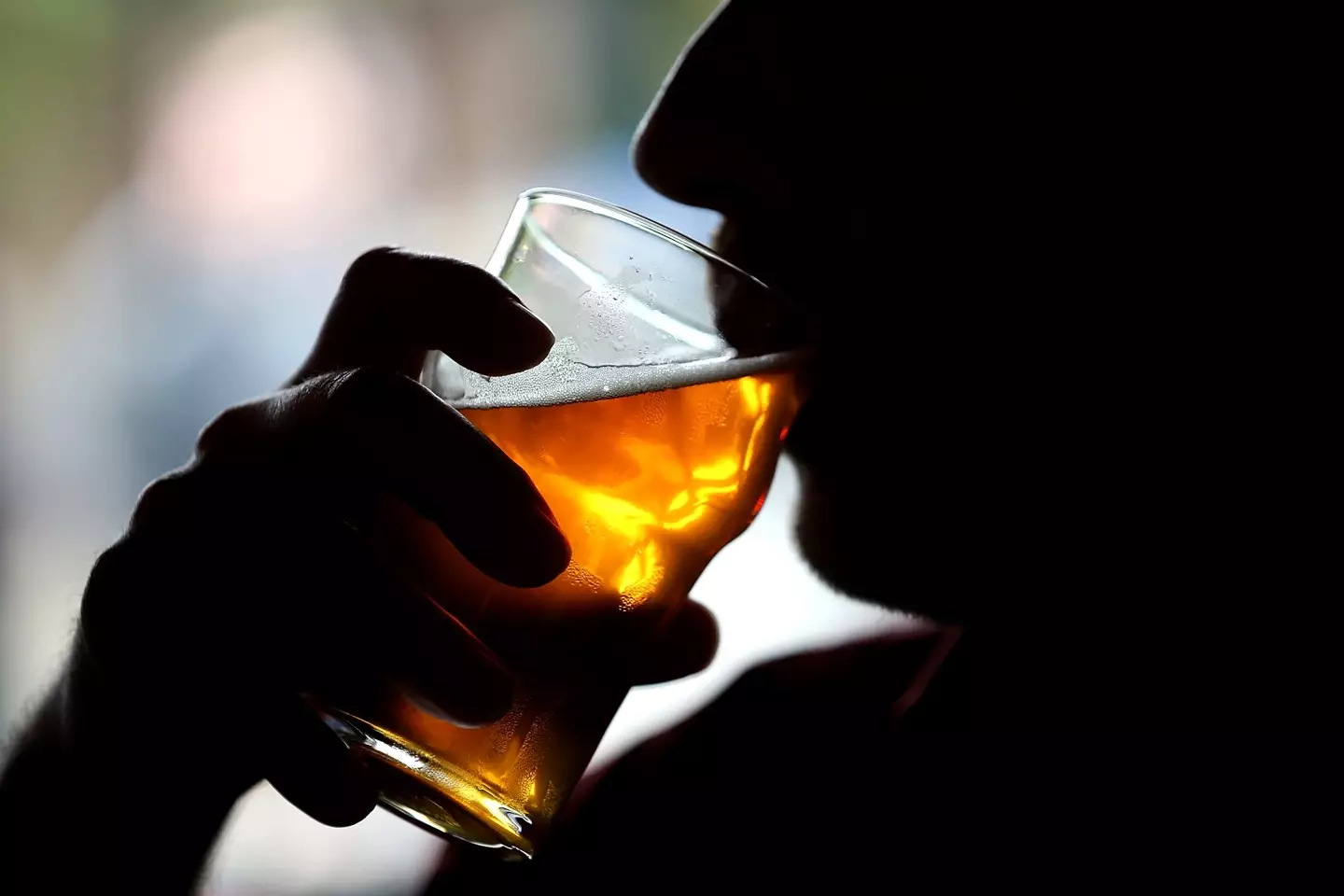
They said alcohol is a major risk factor in contracting cancer (Justin Sullivan via Getty Images)
“Processed meats contain compounds like nitrites and N-nitroso compounds, which raise the cancer risk.
“The high heat involved in processing meats can produce carcinogenic compounds like polycyclic aromatic hydrocarbons and heterocyclic amines, further upping the cancer risk.
“Red meats contain heme iron, which, when metabolised, may generate harmful compounds that could damage the colon.”
She went on to expand on this in an interview with Newsweek, in which she said a lot of her patients think sugar will increase their cancer risk, but clarified that overconsumption is only dangerous in terms of obesity.
She said: “Obesity is a proven risk factor for at least 13 types of cancer because it promotes chronic inflammation, hormonal imbalances (like higher levels of insulin and estrogen), and metabolic changes that create a favorable environment for cancer development.
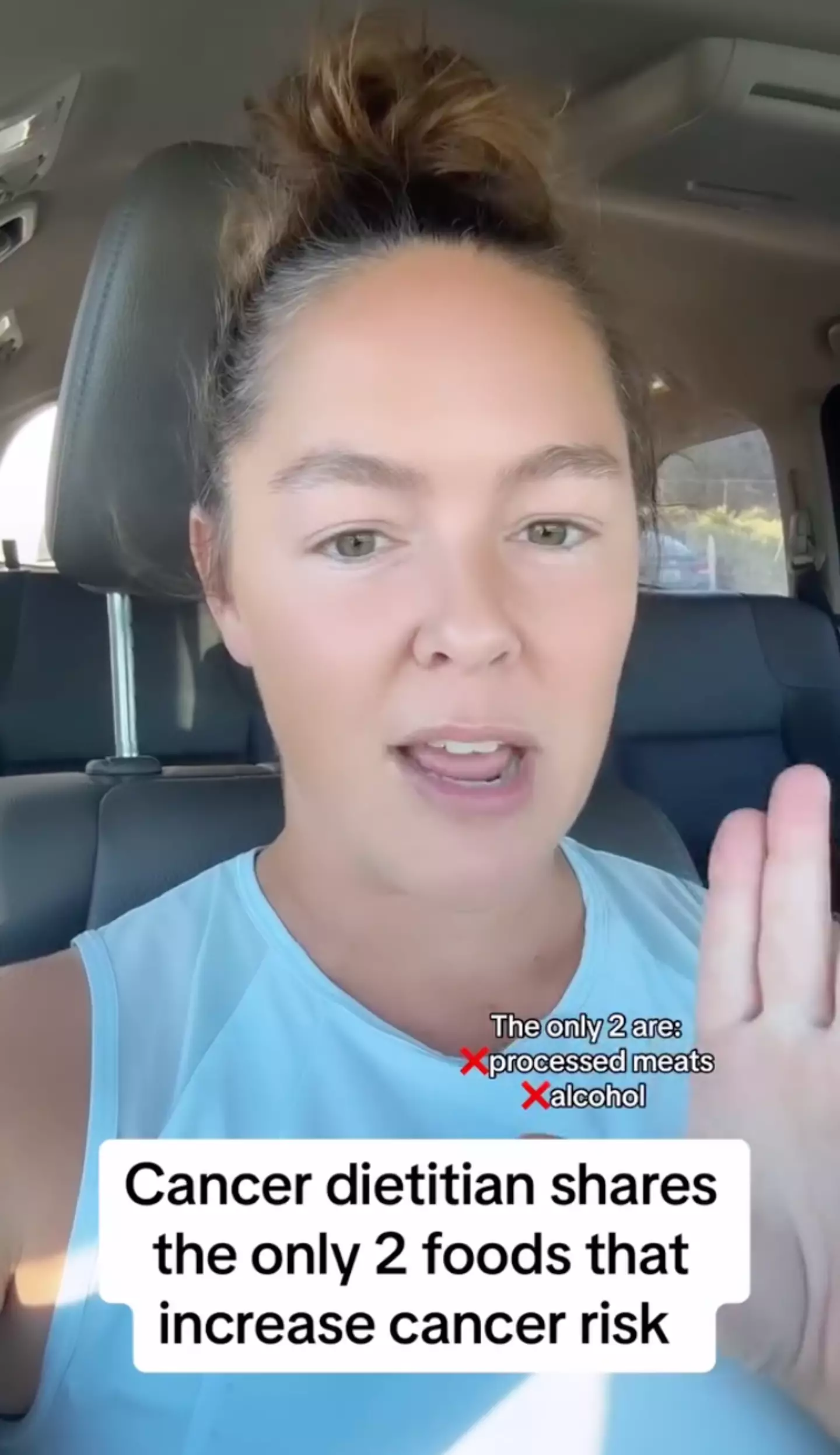
She shared it on Instagram (Nichole Andrews via Instagram)
“The key takeaway: It’s not sugar itself—it’s the overall calorie balance and body fat that matter most.”
The cancer-focused dietician went on to say: “Diet is one of the most impactful lifestyle factors in cancer prevention and survivorship.”
She went on to state what she believes is the diet to focus on isn’t simply to cut out meat or sugar altogether, but to focus on ‘high-quality animal proteins, like fish, eggs, poultry, or lean meats or lean dairy, paired with an abundance of vegetables’.
She said of this diet: “This approach is sustainable, enjoyable, and scientifically supported for cancer risk reduction”.
Andrews also stated in her Instagram video, after clearing up which two things to avoid, that she isn’t saying you can’t have fun in your diet.
She said: “I want to be very clear that there’s no direct link between each sugar and causing cancer.
“It’s important to focus your goals more on how you can become more curious and aware of what’s in your foods – what are the nutritional values, how do you feel after eating certain meals, and how to create plates that not only taste good but also support your usual lifestyle and a Cancer Prevention lifestyle that has been supported through human data.”